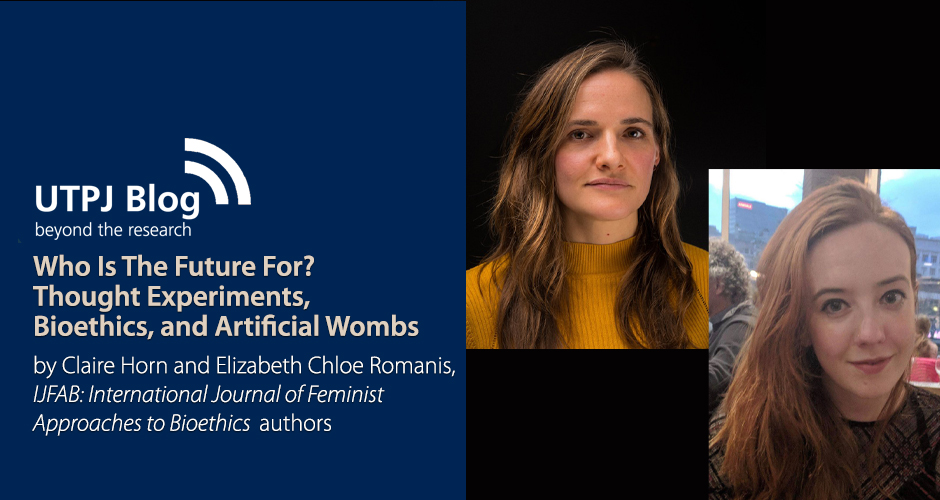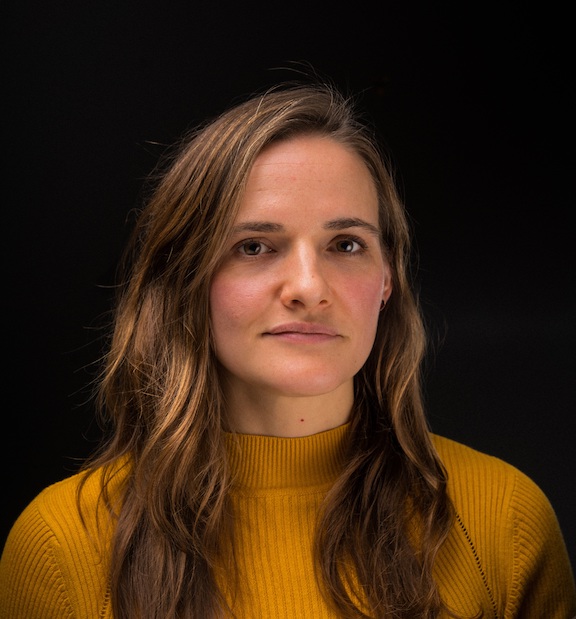
Written by guest bloggers Claire Horn and Elizabeth Chloe Romanis.
When we set out to write this paper, we did so out of a sense of growing concern over the direction in which discussion of artificial wombs seemed to be headed. After the announcement in 2017 of the successful animal trials of a highly advanced device that had allowed extremely lamb fetuses to be gestated outside their mothers’ bodies for a number of weeks, the possibility of ectogenesis (external gestation) began to receive renewed research buzz. But, we had serious misgivings about the speed with which this buzz leapt over the very substantive and immediate ethical questions presented by partial ectogenesis, that is the use of artificial womb technology to ‘take over’ gestation (such as the ethics of trials with neonates and pregnant people) to reach the conclusion that full ectogenesis was inevitable. Perhaps most worrying was the way that bioethical and legal scholars kept coming back to one question in particular: if artificial wombs exist, will they solve the “problem” of abortion? We found it galling to sit in the audience at conferences listening to bioethicists outline all the possible ways that ectogenesis might undo the moral justifications for abortion. And galling to give our own presentations, only to be asked “so will this mean the end of abortion?” To us, this was patently the wrong question. Abortion is not a problem, but a vital medical procedure. An echo chamber was growing as bioethicists set out to debate over the way ectogenesis may “end” abortion and what possible justifications could still be granted for the procedure in the aftermath of artificial wombs.
The process of submitting this paper to journals was a lesson in what kinds of assumptions and philosophical norms get taken for granted in bioethics. In our first two attempts at sending the paper out, we sent it to mainstream bioethical journals, wanting to place it in a forum that was likely to be read by the same bioethicists to whom we were responding. We were quick to find that reviewers took issue with our unwillingness to accept the premise that a pregnant person’s right to abortion should be considered a moral quandary, and our refusal to engage with a “debate” over whether the pregnant person’s rights were equal to those of the fetus. Even as several of our peers had published papers in leading journals, where they did not acknowledge the stakes of framing abortion as a “debate” rather than as a vital form of care, we found ourselves unable to find a home for a paper where we took an expressly feminist stance by refusing to accept these terms. We found it striking that we were accused of being “political” (of course, we were), when it was very clear that to accept the assumption that a pregnant person’s rights are in balance with those of a fetus is also a political claim. In one instance we were instructed by a sympathetic editor to ‘try a feminist journal.’
We were thrilled when this paper was accepted by IJFAB, and even more so, we were thrilled when our reviewers provided us with constructive, supportive feedback that welcomed our stance on abortion and saw value in the critique of the assumptions that have been perpetuated in the bioethical literature on the subject.
We’ve been left wondering at the relationship between bioethics, politics, and justice. When philosophical debate continually side-lines feminist work (rejecting the premises of feminist analysis and isolating feminist critique to feminist forums), scholars invested in these politics are faced with a decision between refusing to engage in a field that is not interested in hearing them, and continually carving out separate space within that field to house these politics. Thought experiments, philosophical musings, ethical arguments do not exist outside the realm of politics. Examining and exploring the future uses of a reproductive technology that could change the landscape of reproduction is a territory rife with political stakes.

Dr. Claire Horn recently completed her PhD in Law at Birkbeck, University of London, where she was a Wellcome researcher from January-July 2020 and previously taught undergraduate Criminology. Her research over the past several years has been focused on law and policy governing sexual and reproductive health and rights, and on the socio-legal impact of emerging artificial womb technologies. She has written on these topics for a variety of academic and nonfiction publications, and her first book is forthcoming in 2021.

Elizabeth Chloe Romanis is an Assistant Professor in Biolaw at Durham University in the UK. Chloe has published extensively on the ethico-legal issues in gestation surrounding the development of artificial womb technologies as an alternative to neonatal intensive care. Her broader research interests include abortion, pregnancy and the law and decision-making in obstetrics. Chloe currently teaches Contemporary Issues in Biolaw and Contract Law at Durham Law School.
Their latest article in International Journal of Feminist Approaches to Bioethics entitled “Artificial Wombs and the Ectogenesis Conversation: A Misplaced Focus? Technology, Abortion, and Reproductive Freedom” is free to read for a limited time here.
The UTP Journals blog features guest posts from our authors. The opinions expressed in these posts may not necessarily represent those of UTP Journals and their clients.
Comments on this entry are closed.